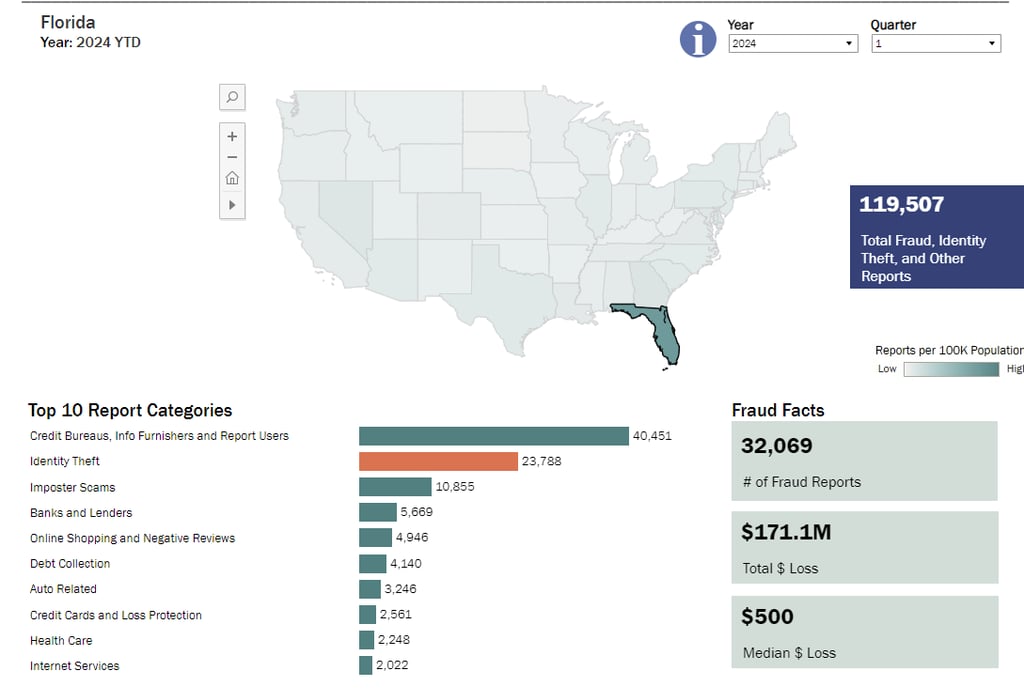How to Protect Yourself from Identity Theft: Tips from a Private Investigator
Protect yourself from identity theft with expert tips from Insight Investigative Group, LLC. Discover warning signs, preventative measures, and steps to take if you suspect fraud. Learn how our private investigation services, background checks, and fraud investigations can help you safeguard your personal information.
IDENTITY THEFT PRIVATE INVESTIGATION


Introduction
Identity theft is a serious and growing threat in today’s digital age, affecting millions of people each year. The consequences can be devastating, from financial loss to damage to your credit score and personal reputation. As private investigators at Insight Investigative Group, LLC, we have extensive experience in identifying and preventing identity theft. In this article, we provide valuable insights and practical tips to help you protect yourself from becoming a victim.
Understanding Identity Theft
Identity theft occurs when someone unlawfully obtains and uses your personal information, typically for financial gain. There are several types of identity theft, each with its own methods and consequences.
Financial Identity Theft: This is the most common form, where thieves steal your financial information, such as credit card numbers or bank account details, to make unauthorized purchases or withdrawals.
Medical Identity Theft: In this case, thieves use your personal information to obtain medical services or drugs, leaving you with the bills and potential inaccuracies in your medical records.
Criminal Identity Theft: Here, a thief gives your personal information to law enforcement when they are arrested, resulting in criminal charges appearing on your record.
Synthetic Identity Theft: This involves combining real and fake information to create a new identity, which is then used to open accounts or make purchases.
Identity theft is alarmingly prevalent. According to the Federal Trade Commission (FTC), there were 4.8 million identity theft and fraud reports in 2020 alone. Thieves use various methods to steal your information, including phishing scams, data breaches, and social engineering tactics.
Warning Signs of Identity Theft
Early detection is crucial in minimizing the damage caused by identity theft. Here are some warning signs to watch out for:
Unexplained Transactions: Regularly review your bank and credit card statements. If you notice any unfamiliar transactions, contact your financial institution immediately.
Changes in Credit Score: Monitor your credit score for unexpected changes. An unexplained drop could indicate fraudulent activity.
Receiving Unfamiliar Bills or Collection Notices: If you receive bills for services you didn’t use or collection notices for debts you don’t owe, it’s a red flag.
Unusual Activity on Social Media Accounts: Hackers may use your social media accounts to gather personal information or even impersonate you.
As of July 2024, Identity theft is the second largest reported fraud crime with nearly 24,000 cases reported.
Preventative Measures
Taking proactive steps can significantly reduce your risk of identity theft. Here are some effective preventative measures:
Secure Your Personal Information
Use Strong, Unique Passwords: Avoid using easily guessable passwords. Instead, create complex passwords that include a mix of letters, numbers, and symbols. Consider using a password manager to keep track of them.
Enable Two-Factor Authentication: Two-factor authentication adds an extra layer of security by requiring a second form of verification in addition to your password. We recommend the Google Authenticator application or Authy
Protect Your Social Security Number: Only share your Social Security number when absolutely necessary. Store your Social Security card in a secure place, not in your wallet.
Be Cautious with Sharing Information
Limit What You Share on Social Media: Avoid posting personal information such as your birthdate, address, or phone number on social media. Thieves can use this information to steal your identity.
Verify the Identity of Anyone Requesting Personal Information: Be wary of unsolicited requests for personal information. Always verify the identity of the requester before providing any details.
Regular Monitoring and Alerts
Utilize Credit Monitoring Services: These services can alert you to changes in your credit report, helping you detect potential fraud early.
Set Up Alerts for Unusual Activity: Many banks and credit card companies offer alerts for unusual activity on your accounts. Take advantage of these features to stay informed.
What to Do If You Suspect Identity Theft
If you suspect that your identity has been stolen, it’s important to act quickly to minimize the damage.
Immediate Actions
Contact Your Bank and Credit Card Companies: Report any unauthorized transactions and request that your accounts be frozen or monitored for further suspicious activity.
Place a Fraud Alert on Your Credit Reports: Contact one of the three major credit bureaus (Equifax, Experian, or TransUnion) to place a fraud alert on your credit report. This will make it harder for thieves to open new accounts in your name.
Reporting Identity Theft
File a Report with the Federal Trade Commission (FTC): The FTC provides a detailed recovery plan and necessary forms to report identity theft.
Inform Local Law Enforcement: File a police report to document the theft. This can be useful if you need to prove the crime to creditors or other authorities.
Working with Professionals
Hire a Private Investigator: A private investigator can help track down the source of the identity theft and gather evidence to support your case.
Work with Identity Theft Recovery Services: These services offer comprehensive support to help you recover from identity theft, including assistance with paperwork and contacting creditors.
Conclusion
Identity theft can have severe consequences, but by taking proactive steps and staying vigilant, you can protect yourself from becoming a victim. Regularly monitor your financial statements, use strong passwords, and be cautious about sharing personal information. If you suspect that your identity has been compromised, don’t hesitate to reach out to professionals like Insight Investigative Group, LLC for assistance. By following these tips, you can significantly reduce your risk and ensure your personal information remains secure.




